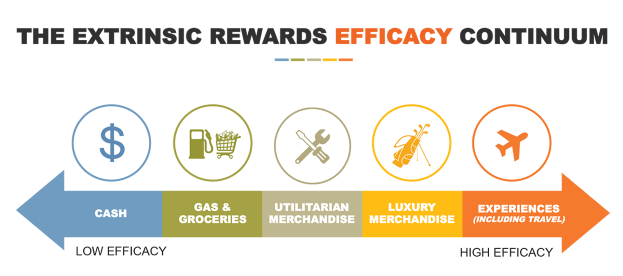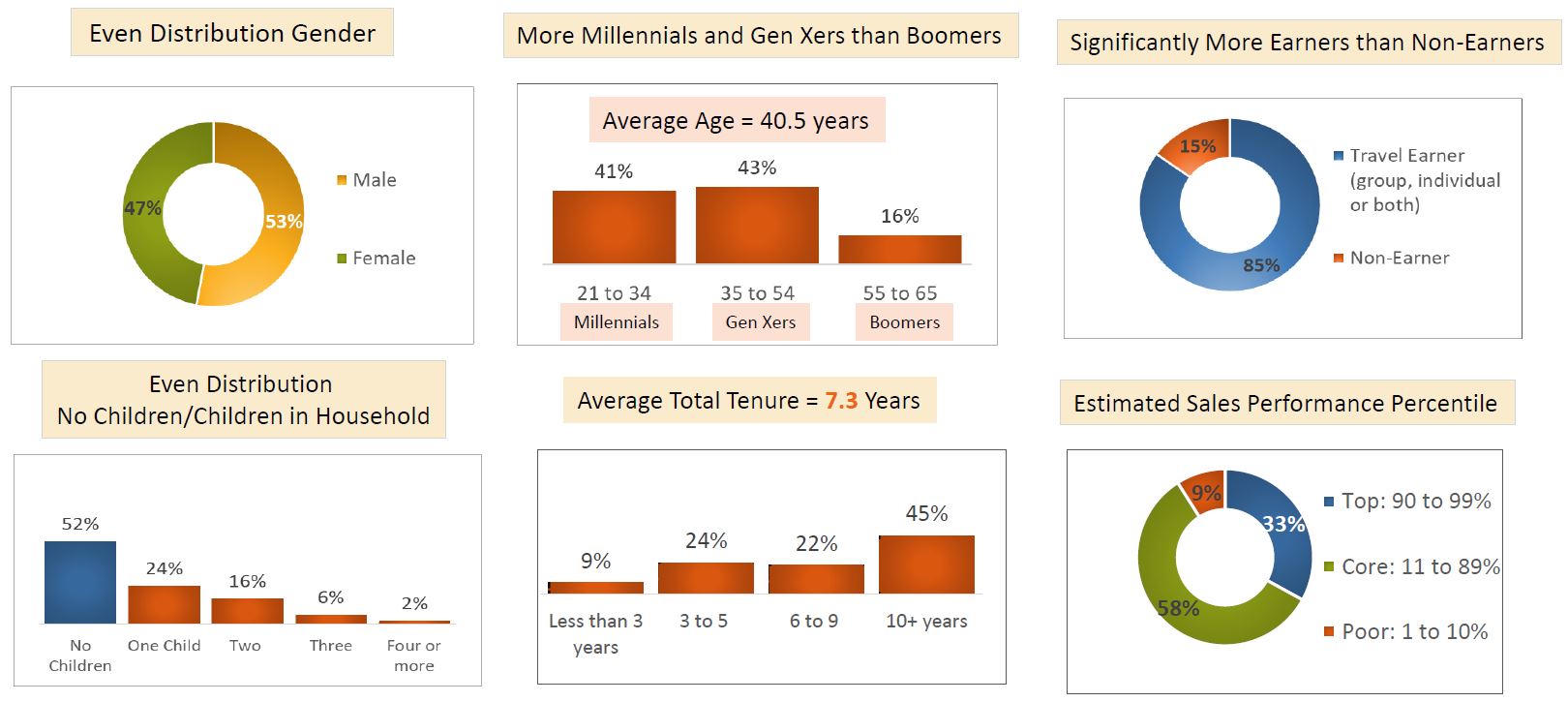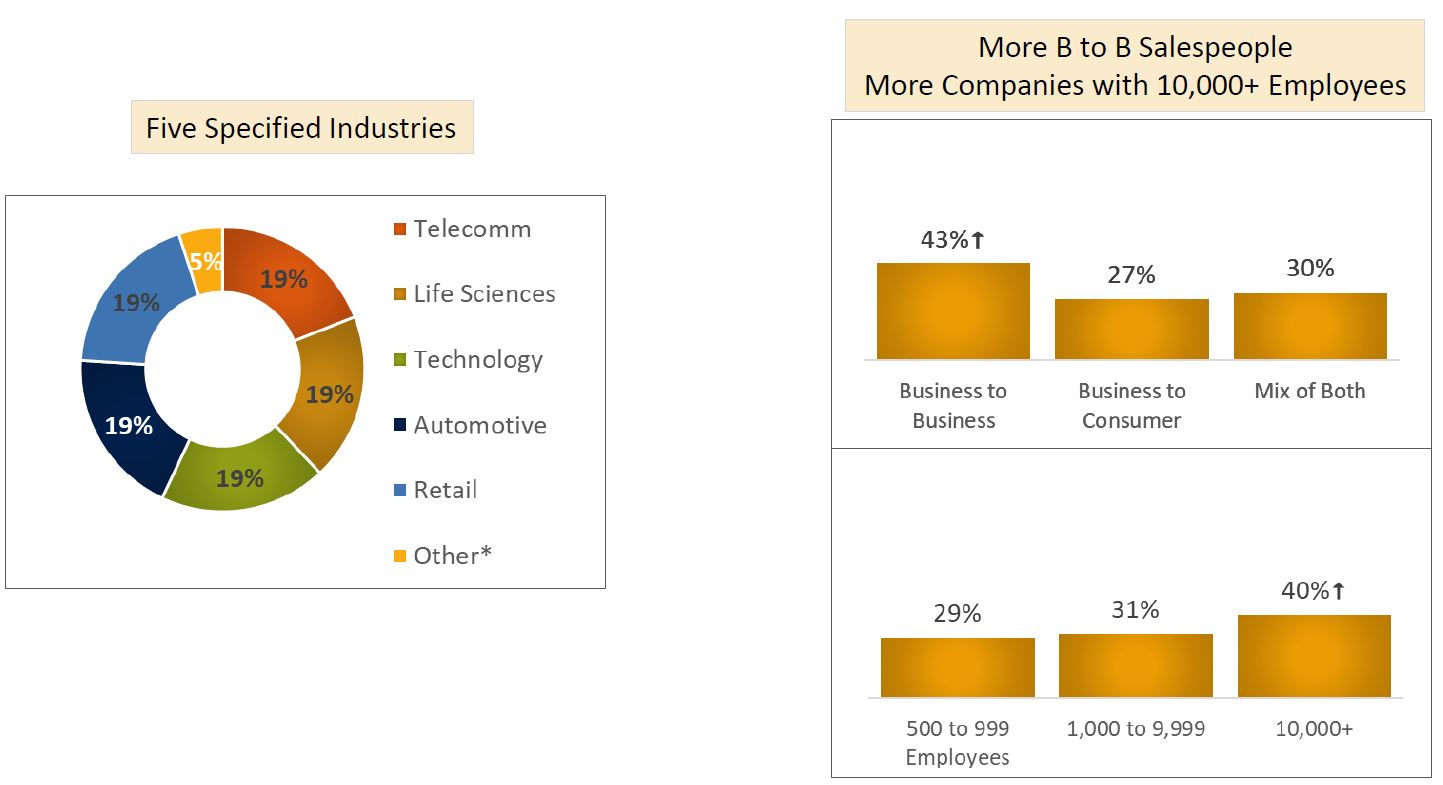What Salespeople Really Want From a Travel Rewards Program
Incentive travel is a powerful tool to motivate employees and can help increase sales and improve a company’s bottom line.
Scroll Down
The announcement of an incentive or appreciation trip based on a company-wide sales goal gets people excited and ready to work hard to achieve that goal.
Using travel as an incentive for your employees is more effective than even cash. Cash has a way of disappearing into our bank accounts, never to be thought of again. A trip or an experience is infinitely more memorable and that makes it infinitely more impactful.
To make an award travel investment pay off, you need efficacy. Efficacy refers to the ability something has to produce a desired result.

The Efficacy Continuum is important, but it’s not the whole story. According to international studies by Aberdeen Research, 100 percent of “best-in-class” companies (those with the highest customer retention and sales growth numbers) offer their employees some form of incentive travel. Incentive travel is not just for salespeople. Of companies that run reward programs, 53 percent use incentive travel to recognize sales, 43 percent to recognize all employees, 33 percent to recognize channel partners, and 27 percent to recognize customer loyalty (Incentive Federation).
According to the Incentive Research Foundation (IRF), properly designed and executed incentive travel programs can boost sales productivity by 18 percent and produce a return on investment (ROI) of 112 percent.
Andrew Clark, President of BI WORLDWIDE Canada, says we are receiving more travel reward enquiries than ever before “demand for unique and personal travel experiences is growing” he says. “Many of the Fortune 1000 and Global 2000 have reverted back to award travel since the Great Recession of 2008-09 to increase engagement with their channel partners and employees.”
With the help of Research Now SSI, a third-party digital data collection company, BI WORLDWIDE conducted a travel rewards study to investigate the competitive value of award travel as a recognition strategy for salespeople, specifically:
- Current use of travel awards for salespeople
- Motivations for participation in travel award programs
- Attitudes and perceptions toward group and individual travel awards
- Preferences for travel award experiences
In the spring of 2018, BI WORLDWIDE gathered responses from 500 sales associates aged between 21 and 65 years old who work for organizations larger than 500, representing five industry sectors. Survey participants were eligible to earn travel rewards for their past 3-year sales performance.
Participant Profile

Industry Profile

1. Company Engagement Motivators
Those sales associates surveyed affirm overall healthy sales attitudes. More than 75 percent are positively engaged with their current job and employer. 94 percent are willing to work especially hard for their company’s customers.
2. Participation and Motivation
Participants report significantly higher motivation to achieve individual (90 percent) versus group (85 percent) travel awards.
3. Opportunities Associated with Travel Awards
93 percent of participants agree that travel award opportunities make them feel recognized by their company and peers. Participants also feel recognized by their family and friends and are willing to share the travel experience with them.
4. Motivational Appeal of Travel-Related Factors
The majority of participants want more choices of destinations. No business meetings or mandatory functions are secondary motivators.
5. “Best Possible” Vacation Experience
“Unplugging” is unequivocally the favoured vacation experience – 4 times more than any other activity. Relaxing/unwinding on a beautiful beach or by a pool earns top importance for travel activities, more so for women than men.
6. Travel Duration: Group vs. Individual
Participants agree that group travel should be relatively short (weekend or 3 to 4 days) and individual travel should be longer (5 days or more). Ideally, participants want a long trip (over 7+ days) by themselves, rather than with colleagues.
Contact us for a copy of the full study including what travel award options are more popular among millennials, Gen X, and Boomers by gender.
Key Findings from our Comprehensive Travel Awards Study
Submitting your information allows us to reach out to you in the future.
Experience is Everything
Today’s incentive travel participant, regardless of age, isn’t content with the same experience as before. Instead, they seek new Instagram-worthy experiences that connect them to a destination and they crave personalization and choices when it comes to their travel experiences.
Clark says “our clients are getting away from gala dinners and activities and are looking for a more laid-back, stress-free atmosphere for their employees.” He says they are more in favour of having a flexible and relaxed itinerary.
Individual Travel Incentives
Reward your sales team with the ultimate incentive: Individualized Incentive Travel (iiTravel). Offer them a range of meticulously-planned experiences that cater to their unique travel style designed and delivered by our team of travel professionals. Or, let them create their own travel experiences using points with VentureOut, our proprietary self-booking travel engine. VentureOut allows your participants to book their travel their way including:
- Hotels
- Flights
- Cars
- Tours and transfers
- Cruises
- Resort stays
We also offer hundreds of options for your audience to get out and experience something while travelling. From gourmet dining to helicopter tours, these high-demand opportunities make lasting memories—and result in serious motivation.
See iiTravel in action and learn how it can make your sales team unstoppable.
The best way to get started is to get in touch.













